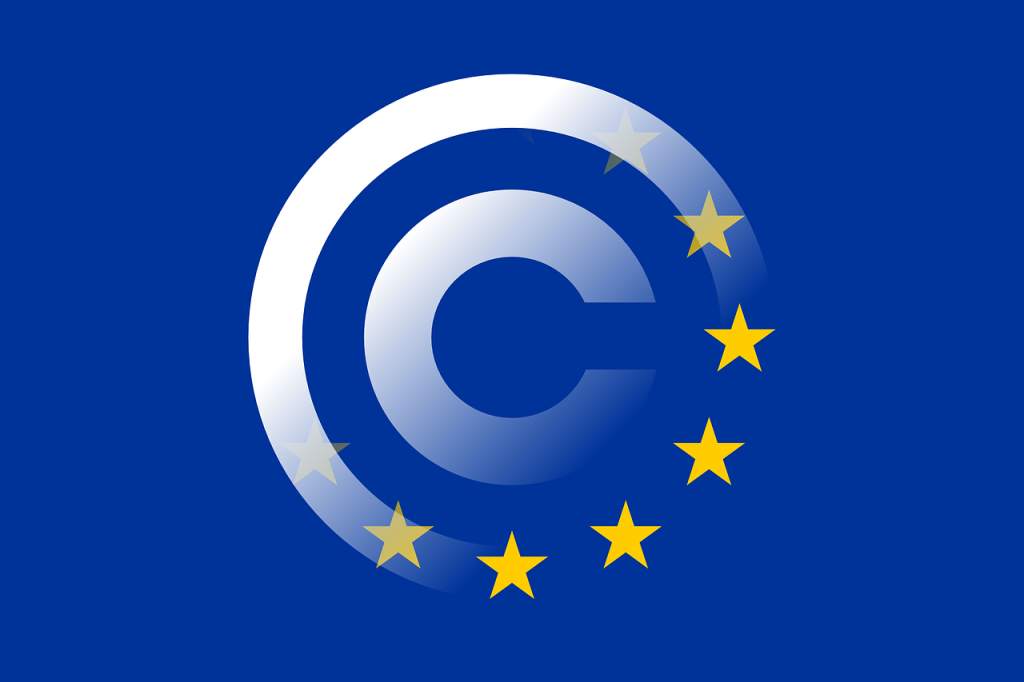The EU’s proposed Copyright Directive has one last hurdle to clear before it comes into law: the European Parliament’s plenary vote in late March. The focus of controversial lobbying campaigns, the copyright reform has been accused of “breaking the internet,” limiting the freedom of expression, banning memes and equating grassroots citizen campaigners with bots.
Why have negotiations on the Copyright Directive been so dramatic, and what does the reform mean for digital companies?
Value Gap
The Directive was proposed by the European Commission in September 2016 in response to arguments by EU rightsholders, author and creator societies, and press publishers that European laws were too outdated to regulate the new ways in which copyrighted material is consumed. The principle of fair remuneration is by and large accepted by stakeholders across the board; the main disagreement is on how to achieve this and whether the methods employed would harm Internet users and platforms — especially smaller ones who may not have the resources to comply.
The draft seeks to address the “value gap” — the gap between the value extracted from copyrighted content and the remuneration paid to the creator — and ensure that rightsholders are fairly remunerated for copyrighted work consumed and shared on digital platforms. It also seeks to eliminate barriers to dissemination of copyrighted material across borders and harmonise the fragmented regulatory environment across the member states.
Article 11 and Article 13
The two most contentious parts of the Copyright Directive are Articles 11 and 13.
Article 13 obliges platforms to filter and monitor user uploads to ensure copyrighted material is not displayed without a licence. Under the current draft, large platforms must make their “best efforts” to secure licensing agreements with rightsholders in order to publish their content, and must do everything they can to ensure content which breaches copyright is not uploaded.
This is a relative win for large platforms like YouTube, which won’t face unconditional liability for copyright-protected content as the European Parliament originally proposed. However, they must now pay “appropriate and proportionate remuneration” according to revenues generated rather than a flat rate. YouTube has said that the Directive fails to clearly outline requirements for how rightsholders should cooperate to identify their content and that it introduces “vague, untested requirements that could be imposed on well-meaning platforms, content creators and rights holders.”
Rightsholders, meanwhile, have been calling for a stronger Article 13, with some even suggesting that the wording agreed by EU institutions is worse than the current situation.
Article 11 obliges Internet platforms which share snippets of content created by others, such as Google News, to obtain a licence from the original publisher. This has been welcomed by press publishers such as Axel Springer, which will now be able to seek compensation from news aggregator websites for having their content displayed. However, uploading single words or very short extracts will still be permitted. Google News’ Vice President has warned that Google is deeply concerned about the inclusion of Article 11 and that it may shut down the Google News service in Europe, claiming the reform would make it too difficult to operate.
Misinformation Overload
The wording of the copyright reform has been criticised by platforms and grassroots citizen campaigners alike, as well as some of the creator societies. The amount of misinformation, disagreements over how to interpret articles, and harassment of the negotiators has been staggering. A Czech diplomat received abuse on Twitter for reporting the outcome of an Ambassadors’ meeting, while the European Commission posted a controversial blog (later taken down) endorsing claims that ‘big technology’ had ‘created’ grassroots campaigns against the Directive.
Two-and-a-half years after the original proposal was published, even Parliament negotiators can’t agree on the interpretation of the text. Parliament’s Rapporteur Axel Voss MEP (EPP, Germany) and the European Commission have given their reassurances that the final agreement will still allow users to freely share memes, GIFs and other parody material for non-commercial purposes — but Shadow Rapporteur Julia Reda (Greens-EFA, Germany) has spent two years loudly claiming the opposite and urging all MEPs to vote against the Copyright Directive in order to “save your internet.”
One Last Push
The EU member states have already approved the reform, as has the Parliament’s Legal Affairs Committee. Campaigners from both sides of the argument are gearing up for one last push to either kill Article 13 and copyright reform altogether, or to make sure it survives Parliament’s plenary vote on 25–28 March.
Regardless of how the Parliament’s plenary vote pans out, the Copyright Directive will be remembered as one of the most active, controversial and virulent campaigns of this legislative term. It may take some time to rebuild trust and make sure the reform indeed does what it originally set out to do: help rightsholders be fairly remunerated for their work in a changed digital economy, while ensuring continued online freedom of expression for citizens.
Autor: Simona Lipstaite, International Public Policy Manager, Access Partnership





